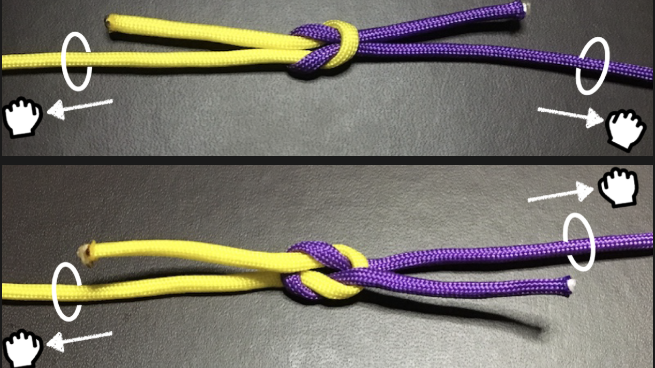Plugging a favorite app: Knots 3D.
Used it so many times fishing, camping, and working.
Snagged this app free a few years back. Use it all the time and love to review knots on it when I’m bored.
We all know the strongest knot is created by leaving your wired earbuds in your pocket.
Removed by mod
Right-- it’s sort of a weird premise to run an experiment on, because it doesn’t really seem like knot strength is something humans would be any good at intuiting in the first place.
This is especially true since most people don’t interact with knots on a regular basis. And those places where we do interact with knots regularly, and the strength matters, there’s already been a lot of work done on determining the best knot(s). So, we will just rely on said previous study. For example, when I tie a rope to my climbing harness, I tie a figure eight knot. Have I done the research to show that this is the right choice? No, I haven’t. But, the climbing community has done a lot of work on it and I trust the work done by the community. Maybe there is a stronger knot. But, the figure eight is good enough, is easy enough to tie and visually confirm.
The few other knots I use, don’t need to be the strongest knots; or, strength is only one factor I care about. Just about every rope I own has a bowline tied at one end. A non-closing, secure enough, loop at one end is great when tying up a load on a vehicle. The other end gets my other common “good enough” knot: a trucker’s hitch. For clothesline type situations (e.g. hanging up towels at a beach), a taut-line hitch gets used. Again, maybe not the strongest, but it gets the job done and is easy enough to work with.
And I would guess this is how a lot of people work with knots. They know a few, use them for everything and only really get specific in the few cases where it matter. And then they rely on information for people/groups who have put the time and study in.
Turns Out Humans Are Terrible At Something That Doesn’t Really Matter To Most Of Them
the only way I’ve learned is trusting other humans and experimentation.
Umm, are there other ways to learn things?
It’s the first knot in the thumbnail, to save people who just want to guess without the trouble of looking through the article which is mostly just the headline stretched to three paragraphs.
hownot2 vibes detected!
Interesting stuff and I’m not a climber
How about furries? Do they intuite better?




